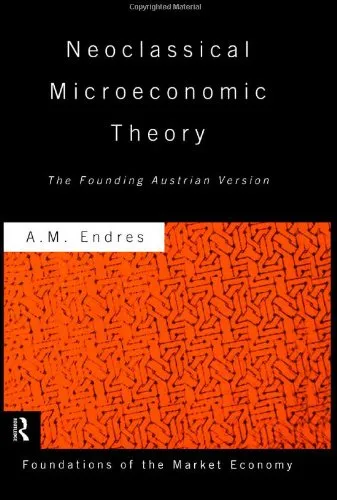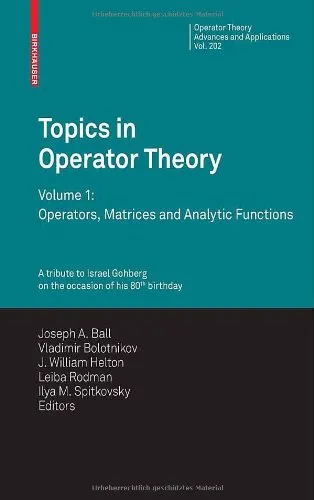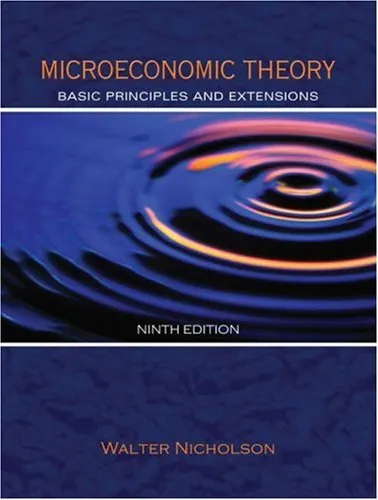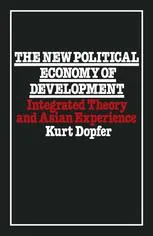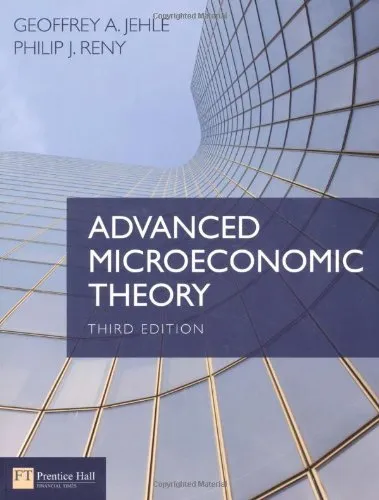Neoclassical Microeconomic Theory: The Founding Austrian Vision
4.9
Reviews from our users

You Can Ask your questions from this book's AI after Login
Each download or ask from book AI costs 2 points. To earn more free points, please visit the Points Guide Page and complete some valuable actions.Related Refrences:
Introduction
Welcome to 'Neoclassical Microeconomic Theory: The Founding Austrian Vision'. This book serves as a comprehensive exploration into the synthesis of neoclassical microeconomics through the lens of Austrian economic thought. It addresses the foundational principles and methodologies introduced by Austrian economists that have significantly shaped modern economic theory.
The discourse around microeconomics often gravitates towards contemporary models and theories, yet it is essential to acknowledge and understand the foundational ideas that have paved the way for these developments. This book focuses specifically on the pioneering contributions from the Austrian school, unraveling the complex interactions and ideologies that have immensely influenced neoclassical microeconomics as we know it today.
Detailed Summary of the Book
In 'Neoclassical Microeconomic Theory: The Founding Austrian Vision', readers embark on a journey through the historical and intellectual influences that Austrian economists have had on the field of microeconomics. The book begins by delving into the early Austrian thinkers like Carl Menger, Eugen Böhm-Bawerk, and Friedrich von Wieser, highlighting their groundbreaking work on value theory, marginal utility, and subjective valuation. The book methodically addresses how these ideas were incorporated into the broader neoclassical framework, thus impacting modern economic analysis.
Further into the book, the detailed expositions cover the evolution of key concepts such as opportunity cost, entrepreneurship, market processes, and the critical role of knowledge in economic decision-making. The narrative emphasizes the distinctive Austrian perspective on these topics, providing a rich tapestry of thought often overlooked in contemporary discourse. Through rigorous analysis, the book explores how these foundational theories evolved, adapted, and sometimes clashed with mainstream economic thought.
The book also captures critical debates and dialogues between Austrian economists and their contemporaries, shedding light on how these interactions propelled the development of microeconomic theory. This critical examination is not only informative but also challenges readers to rethink familiar economic principles, encouraging a deeper appreciation of their origins and implications.
Key Takeaways
- Understand the historical context and development of Austrian economic theory within the microeconomic paradigm.
- Learn how Austrian economists have influenced and shaped modern neoclassical microeconomic theory.
- Gain insights into the unique Austrian methodologies that prioritize subjective value, marginal utility, and the importance of individual choice.
- Explore the critical role of entrepreneurship and market processes as seen through the Austrian perspective.
- Engage with intellectual debates that highlight the dynamic and evolving nature of economic theory.
Famous Quotes from the Book
"The real world is far from the equilibrium models often espoused in traditional economics, and it is the Austrian economists who dare to tackle this complex reality by emphasizing the human element in market interactions."
"Understanding the pulse of market dynamism requires embracing the uncertainty and subjectivity inherent in every economic decision."
Why This Book Matters
'Neoclassical Microeconomic Theory: The Founding Austrian Vision' is an essential read for anyone interested in the evolution of economic thought and its practical applications. By providing a meticulous account of Austrian contributions to microeconomics, this book fills a crucial gap in economic literature. It serves as an invaluable resource for students, academics, and professionals alike who are eager to deepen their understanding of economic theory beyond conventional narratives.
The book invites readers to critically engage with the very foundations of economic analysis, potentially sparking innovative thought and dialogue in a field that continuously shapes policies and markets worldwide. It is not merely a historical account but a profound commentary on the relevance of Austrian principles in today’s complex and unpredictable economic environment.
Free Direct Download
You Can Download this book after Login
Accessing books through legal platforms and public libraries not only supports the rights of authors and publishers but also contributes to the sustainability of reading culture. Before downloading, please take a moment to consider these options.
Find this book on other platforms:
WorldCat helps you find books in libraries worldwide.
See ratings, reviews, and discussions on Goodreads.
Find and buy rare or used books on AbeBooks.
1291
بازدید4.9
امتیاز0
نظر98%
رضایتReviews:
4.9
Based on 0 users review
Questions & Answers
Ask questions about this book or help others by answering
No questions yet. Be the first to ask!
